第133章 Chapter V. The Reconstruction Period(32)
There is no defence or security for any of us except in the highest intelligence and development of all. If anywhere there are efforts tending to curtail the fullest growth of the Negro, let these efforts be turned into stimulating, encouraging, and making him the most useful and intelligent citizen. Effort or means so invested will pay a thousand per cent interest. These efforts will be twice blessed--"blessing him that gives and him that takes."
There is no escape through law of man or God from the inevitable:--
The laws of changeless justice bind Oppressor with oppressed;
And close as sin and suffering joined We march to fate abreast.
Nearly sixteen millions of hands will aid you in pulling the load upward, or they will pull against you the load downward. We shall constitute one-third and more of the ignorance and crime of the South, or one-third its intelligence and progress; we shall contribute one-third to the business and industrial prosperity of the South, or we shall prove a veritable body of death, stagnating, depressing, retarding every effort to advance the body politic.
Gentlemen of the Exposition, as we present to you our humble effort at an exhibition of our progress, you must not expect overmuch. Starting thirty years ago with ownership here and there in a few quilts and pumpkins and chickens (gathered from miscellaneous sources), remember the path that has led from these to the inventions and production of agricultural implements, buggies, steam-engines, newspapers, books, statuary, carving, paintings, the management of drug-stores and banks, has not been trodden without contact with thorns and thistles. While we take pride in what we exhibit as a result of our independent efforts, we do not for a moment forget that our part in this exhibition would fall far short of your expectations but for the constant help that has come to our education life, not only from the Southern states, but especially from Northern philanthropists, who have made their gifts a constant stream of blessing and encouragement.
The wisest among my race understand that the agitation of questions of social equality is the extremest folly, and that progress in the enjoyment of all the privileges that will come to us must be the result of severe and constant struggle rather than of artificial forcing. No race that has anything to contribute to the markets of the world is long in any degree ostracized. It is important and right that all privileges of the law be ours, but it is vastly more important that we be prepared for the exercises of these privileges. The opportunity to earn a dollar in a factory just now is worth infinitely more than the opportunity to spend a dollar in an opera-house.
In conclusion, may I repeat that nothing in thirty years has given us more hope and encouragement, and drawn us so near to you of the white race, as this opportunity offered by the Exposition; and here bending, as it were, over the altar that represents the results of the struggles of your race and mine, both starting practically empty-handed three decades ago, I pledge that in your effort to work out the great and intricate problem which God has laid at the doors of the South, you shall have at all times the patient, sympathetic help of my race; only let this be constantly in mind, that, while from representations in these buildings of the product of field, of forest, of mine, of factory, letters, and art, much good will come, yet far above and beyond material benefits will be that higher good, that, let us pray God, will come, in a blotting out of sectional differences and racial animosities and suspicions, in a determination to administer absolute justice, in a willing obedience among all classes to the mandates of law. This, this, coupled with our material prosperity, will bring into our beloved South a new heaven and a new earth.
The first thing that I remember, after I had finished speaking, was that Governor Bullock rushed across the platform and took me by the hand, and that others did the same. I received so many and such hearty congratulations that I found it difficult to get out of the building. I did not appreciate to any degree, however, the impression which my address seemed to have made, until the next morning, when I went into the business part of the city. As soon as I was recognized, I was surprised to find myself pointed out and surrounded by a crowd of men who wished to shake hands with me. This was kept up on every street on to which I went, to an extent which embarrassed me so much that I went back to my boarding-place. The next morning I returned to Tuskegee. At the station in Atlanta, and at almost all of the stations at which the train stopped between that city and Tuskegee, I found a crowd of people anxious to shake hands with me.
The papers in all parts of the United States published the address in full, and for months afterward there were complimentary editorial references to it. Mr. Clark Howell, the editor of the Atlanta Constitution, telegraphed to a New York paper, among other words, the following, "I do not exaggerate when I say that Professor Booker T. Washington's address yesterday was one of the most notable speeches, both as to character and as to the warmth of its reception, ever delivered to a Southern audience. The address was a revelation. The whole speech is a platform upon which blacks and whites can stand with full justice to each other."
The Boston Transcript said editorially: "The speech of Booker T.
Washington at the Atlanta Exposition, this week, seems to have dwarfed all the other proceedings and the Exposition itself. The sensation that it has caused in the press has never been equalled."